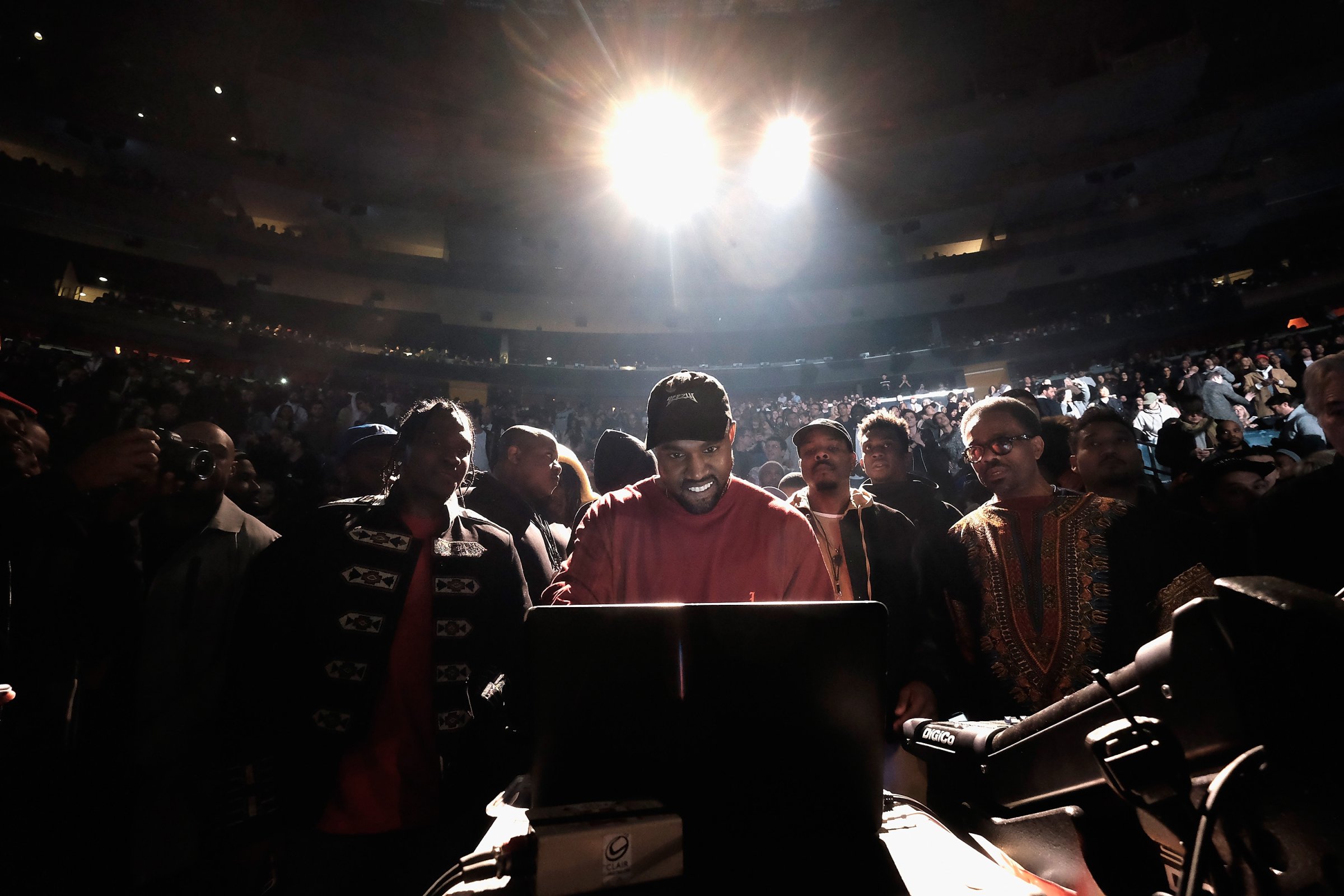
Remember the simple times, when albums came out on Tuesdays at every record store across America? Those days are long gone. The rise of digital services like the iTunes Music Store and, more recently, on-demand streaming services have changed the rules of the music business. Now, they may be further upended by the music industry’s provocateur-in-residence, Kanye West.
The rapper’s seventh solo LP, The Life of Pablo, is available exclusively on Tidal, the $10-per-month music streaming service owned by hip-hop mogul and entrepreneur Jay-Z. West has said the album will never be available for sale anywhere else, contradicting an earlier promise of a wider release through the artist’s website.
Whether Pablo stays Tidal-only over the long haul remains to be seen. But the album’s haphazard rollout highlights the ongoing challenges for artists, music labels and tech companies as they scramble to make money in a tumultuous era, as well as for fans, who simply want an easy way to buy their favorite artists’ latest hits.
The digital music landscape has changed dramatically since West’s last album debuted in 2013. Consumers are in the early days of a shift from buying and owning digital copies of songs to signing up for subscription services that offer a wide on-demand catalog for a monthly fee. Spotify is king of this particular hill, with 20 million paying users. But it recently gained a viable competitor in Apple Music, which has attracted a reported 10 million paying subscribers. Google has a streaming service as well, while other tech heavy-hitters, including Amazon and Pandora, are rumored to be getting in on the action too.
With its 1 million users, Tidal is tiny by comparison to streaming’s biggest services. But it has one big advantage: It’s owned by a cadre of megastars, most notably Jay-Z but also West himself, Rihanna and Madonna, to name a few. Several of those artists have put new music exclusively on Tidal, giving their most loyal fans a reason to sign up.
Thanks to their equtiy stakes in the company, these stars stand to profit by driving their listeners to sign up for Tidal. But that’s also a risky move. Casual listeners who might have bought these performers’ latest albums on iTunes or at Wal-Mart may balk at bothering with an unfamiliar platform. The gambit is especially risky for West, who recently claimed he’s accrued $53 million in debt developing a fashion line and in other ventures.
“Perhaps an exclusive with Kanye for a period of time is going to drive attention and some sign-ups for the service, but it’s hard to imagine how he will be able to have any kind of sustainable business with one [platform],” says Larry Miller, a music business professor at New York University.
There’s some reason to think Kanye’s bet will pay off. Tidal rode the Pablo wave to become the most popular offering in Apple’s App Store shortly after the album was released. But on the flip side, making music available on a plethora of platforms is now, finally, a central tenet of the music industry’s fight against illegal downloading. Make it easier to pay for music, the thinking goes, and most people will gladly comply. Kayne’s Tidal exclusive flips that logic on its head, and he’s paying mightily for it. More than half a million users have stolen the album online, says copyright blog Torrentfreak, calling it a “piracy craze.”
Read more: More is always more on Kanye West’s sprawling The Life of Pablo
For high-profile artists like West, the best release strategy may reside somewhere between a full-on exclusive and a broad release. Limited-time exclusives help boost exposure for a specific platform, so companies are willing to pay handsomely for that attention. Rihanna, for instance, earned a big payday when Samsung bought a million copies of her latest album, Anti, as part of a promotion to give away to fans. Then she released the project on iTunes, Spotify and elsewhere; it managed to rack up 166,000 sales in its first full week of release.
But Kanye’s plan to keep Pablo fully locked down may prove difficult in an industry nearly undone by online piracy. “If there’s anything we’ve learned over the last 17 years,” says Miller, “digital distribution is about anything but utter control.”
More Must-Reads from TIME
- Donald Trump Is TIME's 2024 Person of the Year
- Why We Chose Trump as Person of the Year
- Is Intermittent Fasting Good or Bad for You?
- The 100 Must-Read Books of 2024
- The 20 Best Christmas TV Episodes
- Column: If Optimism Feels Ridiculous Now, Try Hope
- The Future of Climate Action Is Trade Policy
- Merle Bombardieri Is Helping People Make the Baby Decision
Contact us at letters@time.com